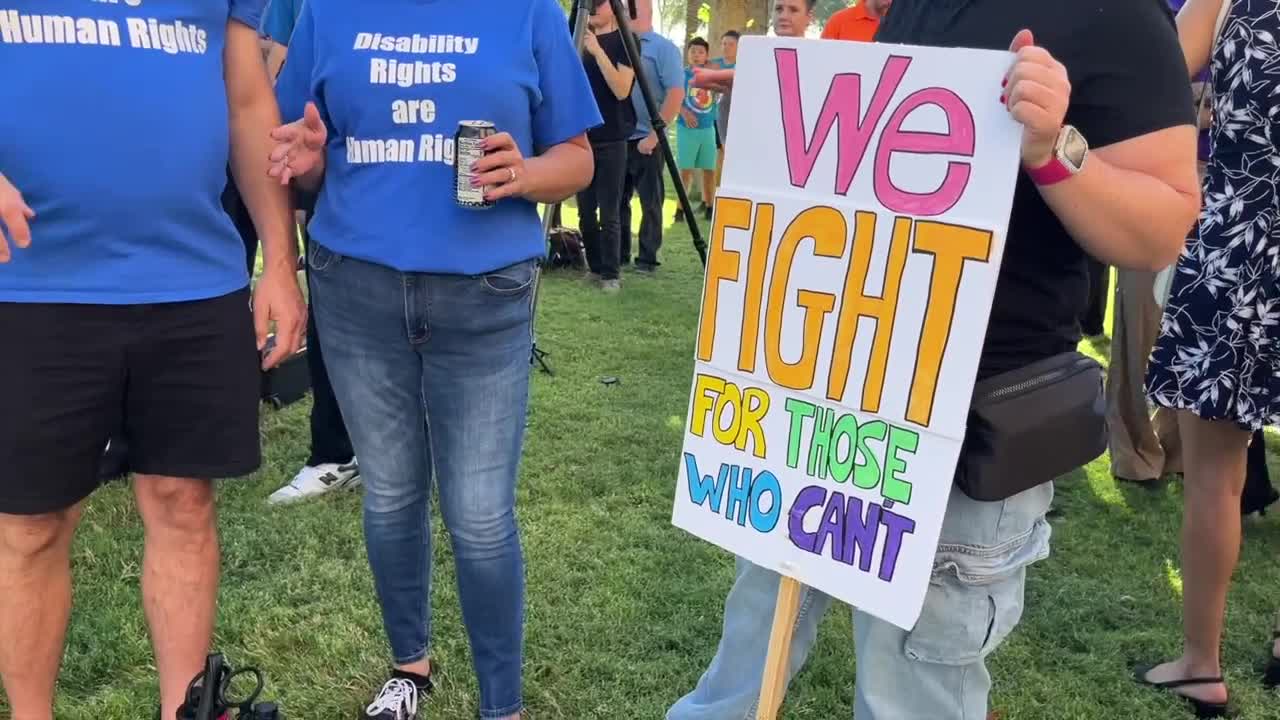PHOENIX — Arizona’s disabilities services program is staring down a new $159 million shortfall – just five months after a bitter battle in the Legislature over an earlier budget hole.
The Division of Developmental Disabilities will ask lawmakers for a “supplemental” funding request of an estimated $56.3 million from the state’s general fund and $103.1 million in federal dollars, the Department of Economic Security exclusively told ABC15.
“We're going to need some additional funding to make sure that we don't have to reduce services or benefits for any individual who is in the Developmental Disabilities program,” DES Director Michael Wisehart said.
DDD almost ran out of money last spring, endangering services for the final two months of the budget year. The law passed to cover the budget hole included reforms that led to major service cuts for children with disabilities starting Oct. 1.
Those cuts, which advocates say will be “catastrophic” for families, are projected to save the department about $133.2 million – but not enough to cover this anticipated shortfall.
“This is on top of the expected savings associated with the clinical decision to reduce services for individuals under the age of 18 for specific, targeted services,” Wisehart said.
Why is DDD facing another budget shortfall?
He told ABC15 two factors are behind the projected shortfall: growth in the program and higher costs for services.
The program’s growth is outpacing Arizona’s population growth, he said.
“The program has been growing at about 7% per year over the last decade, which is rapid growth,” he said.
Some can be attributed to an increase in the state’s population, some to better diagnoses of qualifying disabilities, and some is probably due to people moving to Arizona, he said.
The exact amount of the shortfall could shift – the projection is based on the estimated effects of adjustments to service delivery, billing practices and member assessments, according to DES.
DES will keep a close eye on both program growth and service costs throughout the fiscal year, Wisehart said.
Asking the Legislature for more money — again
This new supplemental request comes a mere five months after lawmakers fixed another $122 million DDD shortfall.
Lawmakers and the governor sparred for months about a solution before passing a bipartisan solution that covered the budget hole and mandated reforms aimed at keeping the program sustainable.
“We certainly didn't come lightly to requesting additional funding, but we did implement what was expected of us,” Wisehart said.
That includes changes to DDD’s assessment tool. Starting Oct. 1, the state will no longer assess the needs of children younger than 10 with disabilities for attendant care, which pays for care workers who help provide safe and healthy living conditions. There are also new age-based limits on habilitation, or therapies that help those with disabilities gain needed life skills.
Families will need to cover those costs on their own – and parents who were paid for those services as part of a state program will no longer receive that compensation.
The state will need to make hard decisions about services if lawmakers don’t approve new spending, Wisehart said.
“The only way that we can avoid having this additional funding need is to either reduce the number of individuals that are coming into the program – waiting lists would be the only way to do that – or to further reduce the array of services,” he said.
The Legislature returns to work Jan. 12, and Gov. Katie Hobbs will release her budget proposal soon after.
The future of DDD
The request for more funding is likely to spark more debate about the future of Arizona’s developmental disabilities program, which Wisehart says is one of the nation’s best.
“It’s important that we shine a light on the ongoing opportunity for families to give their loved ones the very best life that is possible,” he said.
DDD has skyrocketed in growth since the pandemic, and several lawmakers called for the program's spending to be reined in to keep it sustainable.
Arizonans with disabilities, advocates, families and caregivers spent months earlier this year fighting for funding to cover last spring's shortfall, a process several told ABC15 was mentally draining.
When asked what he would tell those families, Wisehart said: “My message to the families is that we are doing our best to serve them holistically.”
A supplemental funding request is necessary to ensure DDD can continue to provide the same array of services they need and want, he added.
DDD serves about 60,000 Arizonans, including nearly 24,000 children under 18.






